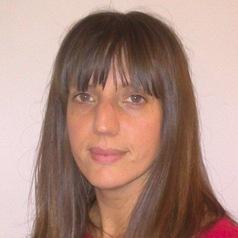
Jessica Pinchbeck
Lecturer in Sport and Fitness, The Open University
Jessica is a Senior lecturer in Sport and Fitness at the Open University. She has worked as an academic at the university since October 2011. Prior to that she worked as an associate lecturer at the Open University since 2008 and as a lecturer in sport and exercise science within the FE sector.
Jessica's specialist area is sport and exercise sociology in particular the topics of female sports participation and the family in sport. Jessica's research interests lie within the sociocultural influences of the family within sport participation. Jessica PhD investigated the socio-cultural influences on female participation in netball across the lifespan.
Less ![]()
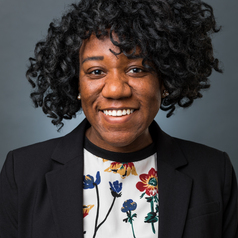
Jessica Ray
Professor of Civil & Environmental Engineering, University of Washington
Dr. Jessica Ray (she/her) is the Robert O. and Irene V. Sylvester Family endowed assistant professor in Water Resources within the Department of Civil & Environmental Engineering at the University of Washington.
Ray joined the University of Washington in January 2019. Previously, Ray was a Miller Institute Postdoctoral Fellow at the University of California, Berkeley investigating low-cost engineered adsorbents for removal of trace contaminants in urban stormwater. This research was part of the NSF Reinventing the Nation's Urban Water Infrastructure (ReNUWIt) engineering research center at Berkeley.
Dr. Ray received her B.S. degree in Chemical Engineering from Washington University in St. Louis in 2009. Upon graduation, Ray remained at Washington University in St. Louis to obtain a M.S. degree (2010, funded by the NSF GK-12 Graduate Research Fellowship) and a Ph.D. in Energy, Environmental & Chemical Engineering (2015, funded by the EPA Students to Achieve Results (STAR) Fellowship).
During her Ph.D., Ray employed surface chemistry techniques to investigate interfacial reactions of nanomaterials in water. At the University of Washington, Ray's research program utilizes a multidisciplinary platform that bridges materials science, and environmental and surface chemistry to increase urban water supply sustainability.
Less ![]()

Jessica Robichaud
PhD Student, Aquatic ecology, Carleton University
Jessica Robichaud is a graduate student at Carleton University. She completed her Master's degree studying the overwintering ecology of freshwater turtles in 2022, and is now pursing her PhD studying marine fish ecology in the Caribbean.
Less ![]()
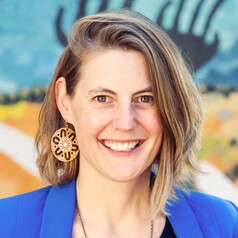
Jessica Shipman
Senior lecturer, Flinders University
Jessica Shipman is a health sociologist from the UK with experience of research, teaching and advocacy in gender, health, and affirmative practice. Jessica’s main interests are gender, sexual health, families and relationships, and young people’s access to care and care transitions.
Less ![]()
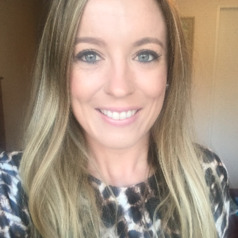
Jessica Shuker
Initial Teacher Education Lecturer , University of Canterbury
ITE Lecturer, University of Canterbury
Less ![]()

Jessica Terruhn
Senior Research Fellow, University of Waikato
I am a sociologist with a research interest in racism and settler colonialism, especially at their intersections with housing and urban inequality and diversity. Over the past decade I have worked as a lead researcher on several multi-year research programmes. I am currently Senior Research Fellow on the WERO Working to End Racial Oppression research team.
Less ![]()

Jessica Trounstine
Professor of Political Science, Vanderbilt University
Jessica Trounstine earned her Ph.D. in Political Science from UC San Diego in 2004 and is a Professor of Political Science at Vanderbilt University.
She previously served as the Foundation Board of Trustees Presidential Chair of Political Science at UC Merced and as assistant professor of politics and policy at Princeton University. She is the author of two award winning books, Segregation by Design: Local Politics and Inequality in American Cities (Cambridge University Press) and Political Monopolies in American Cities: The Rise and Fall of Bosses and Reformers (University of Chicago Press), and numerous articles and book chapters.
Professor Trounstine's work studies the process and quality of representation in American democracy. She is focused on the ways in which formal and informal local political institutions generate inequalities. Professor Trounstine's scholarship is mixed-method; reliant on historical analysis, case studies, experiments, and large-n quantitative analyses. She has served as a consultant for the U.S. Department of Justice, city governments, and various community organizations; and serves on numerous editorial and foundation boards.
Less ![]()
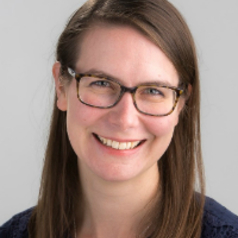
Jessica Walsh
Lecturer in Conservation Science, Monash University
I'm a conservation ecologist, researching how to improve the effectiveness of conservation management and policy for threatened species and ecosystems. I specialise in evidence-based conservation, knowledge exchange, cost-effectiveness analyses, and decision-support tools.
Less ![]()
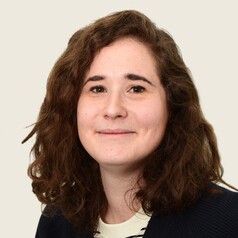
Jessica Wax-Edwards
Marie Curie Postdoctoral Fellow, University College Cork
Jessica Wax-Edwards is a Marie Skłodowska-Curie Action Postdoctoral Fellow at the University College Cork. Previously an Honorary Research Fellow at Royal Holloway University of London, her research interests include memory, violence and politics in twentieth century and contemporary Mexican visual culture. She has published articles on Latin American fiction and documentary cinema, graphic art and photography and her first monograph Documenting Violence in Calderón’s Mexico: Visual Culture, Resistance and Memorialisation was published 2023. Jessica was also a selected participant in the 8-month AHRC-funded mentorship scheme Doing Women’s (Global) (Horror) Film History (DWGHFH); her resulting short film Storylines___ was published 2024.
Less ![]()
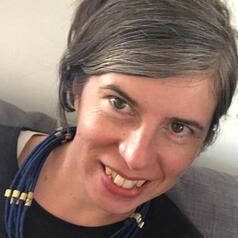
Jessica Whyte
Scientia Associate Professor of Philosophy and ARC Future Fellow, UNSW Sydney
I am currently an Australian Research Council Future Fellow, working on economic sanctions after the Cold War. I am interested in understanding why the period of economic freedom also saw the intensification of economic coercion, particularly in the form of economic and financial sanctions. My research examines the relationship between liberal ideas of economic peace and the reality of economic warfare, and asks how sanctions came to be understood as a non-violent alternative to war. This current project builds on my most recent book The Morals of the Market: Human Rights and the Rise of Neoliberalism (Verso, 2019), which examined the role of neoliberal thinkers in promoting a distinctive version of human rights in the second half of the twentieth century. My broader research interests include human rights and humanitarianism, political philosophy and the relation between international law and politics.
Less ![]()
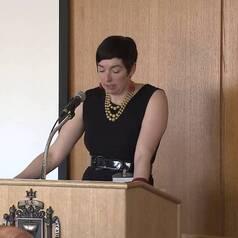
Jessica Wolfendale
Professor of Philosophy, Case Western Reserve University
Jessica Wolfendale is Professor of Philosophy and Professor of Law at Case Western Reserve University. She is the author of War Crimes: Causes, Excuses, and Blame (with Matthew Talbert, Oxford University Press, 2019), Torture and the Military Profession (2007), co-editor of New Wars and New Soldiers: Military Ethics in the Contemporary World (2011), and has published numerous articles and book chapters on topics including security, torture, terrorism, bioethics, and military ethics. Her work has appeared in journals including Ethics and International Affairs, the Journal of Political Philosophy, Res Philosophica, Studies in Conflict and Terrorism, American Journal of Bioethics, and the Journal of Military Ethics. She is currently working on a book on torture and terrorism in America.
Less ![]()
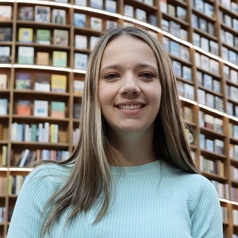
Jessica Woolley
PhD Candidate in Criminology, Deakin University
Jessica Woolley is a PhD Candidate, Research Assistant and Sessional Tutor in Criminology at Deakin University. Jess’ PhD examines how the Victorian justice system responds to technology-facilitated domestic violence through family violence intervention orders. Jess has completed her Bachelor of Arts (Hons) at Deakin University in 2021, and Bachelor of Arts/Laws (Hons) at Monash University in 2020. In 2022, Jess was a recipient of the Research Student Award issued by the International Society for the Study of Rural Crime.
Less ![]()
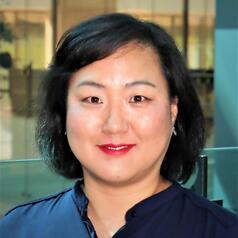
Jessica Yi
Course coordinator, University of South Australia
Jessica Yi (she/her) is a Lecturer in accounting at the UniSA Business and a course coordinator of Financial Accounting 2 and Contemporary Issues in Accounting. Jessica has a PhD in credit risk assessment in financial instruments from University of Adelaide and a Master by reaserch from University of Adelaide. She has subtantial expertise in accounting and more than 10 years of teaching accounting in multiple Australian universities.
Jessica' academic career focusses on the development of high quality and engaging courses for the second and third year accounting students studying on-capmus, online and internationally. Her teaching philosophy centres on the premise that as facilitators of students' learning, academics should provide learning opportunities and guidance to students.
Jessica's research covers the field of credit risk assessment and accounting education. Especially, her principal research interests lie in the prediction of financial distress, such as loan default and corporate bankruptcy and innovation in accounting education and career readiness. In PhD thesis, an innovative and interdisciplinary technique is employed to identify relevant predictors and thus to better explain the characteristics of loan defaulting firms. Her passion for the innovation in accounting education is well reflected in her multiple research and involvement in the innovative accounting education research projects. Her focus on the students' career readiness is well reflected in her continous work with the industry partners and successful outcomes.
With over a decade of teaching experience at both University of Adelaide and University of South Australia, Jessica is very passionate about teaching and focused on enhancing students' engangement and learning ability. Her passion was aknowledged by students' high satisfaction rate.
Less ![]()
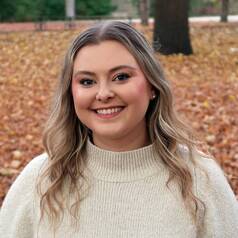
Jessica A. Goddard
PhD Student Investigating Child and Youth Mental Health, Brock University
Ms. Jessica Goddard is currently a PhD student at Brock University working under Dr. Karen Patte and Dr. John Krzeczkowski. She has also completed a Master of Science under Dr. Karen Patte.
Her research has mostly focused on child and youth mental health and mental health program evaluation. Jessica takes pride in facilitating meaningful youth engagement throughout the entirety of the research process, especially on matters that directly affect youth. She also continuously works to create knowledge mobilization tools for youth and schools to disseminate knowledge effectively and improve the mental health literacy of youth.
Less ![]()
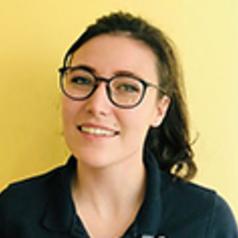
Jessica A. Marino
Doctoral Student in Health Psychology, University of California, Merced
Jessica Marino is a doctoral student in health psychology at the University of California, Merced. She obtained her B.A. in Psychology from UC Merced in 2016 with a minor in Cognitive Science. Marino’s research focus is on the development and expression of maternal behavior. Specifically, she studies how hormones impact maternal behavior, and the intergenerational effects that the mother-child relationship can have on health. Her ultimate goal is to find protective maternal factors that may mitigate health risks in vulnerable children.
Less ![]()

Jessica A. Schoenherr
Assistant Professor of Political Science, University of South Carolina
Jessica Schoenherr is an Assistant Professor in the Department of Political Science at the University of South Carolina, which she joined shortly after receiving her Ph.D. from Michigan State University in 2020. Her research interests are in American political institutions and the U.S. federal court system, particularly the Supreme Court. She specifically addresses three different but related questions: (1) Who is represented in the federal judiciary? (2) Who influences the decision-making process? and (3) How do people learn about and respond to judicial decisions? She approaches these questions using different data and techniques, including experiments, surveys, text analysis, and original observational datasets.
Less ![]()
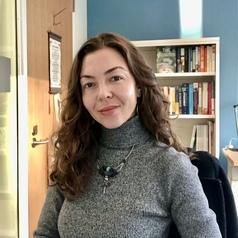
Jessica A. Stern
Research Scientist, Psychology, University of Virginia
Dr. Jessica Stern is a Research Scientist in the Dept. of Psychology at the University of Virginia, where she studies human relationships, attachment, and empathy across the life span. She is especially interested in how first-hand experiences of love and connection allow children, teens, and adults to "pay it forward" through their treatment of other people.
Less ![]()
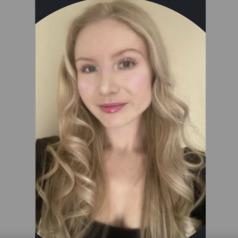
Jessica Alice Farrell
Postdoctoral associate, University of Florida
I earned my BSc in Biological Sciences from the University of Sheffield (UK) with a year abroad at the University of New Mexico (Albuquerque, USA). I was then lucky enough to complete an internship at the University of Sydney and the Sydney Institute of Marine Science in Australia, working with the team leading the Marine Cloud Brightening initiative to mitigate coral bleaching on the Great Barrier Reef. In 2017 I joined the University of Florida's Whitney Laboratory for Marine Bioscience and Sea Turtle Hospital, where I completed my PhD focusing on investigating the fibropapillomatosis (FP) panzootic in sea turtles, with a particular emphasis on the application of environmental (e)-DNA. After graduating in 2022 I went on to work as a postdoctoral fellow at the MD Anderson Cancer Center in Texas, and then returned to the Whitney Laboratory to continue my postdoctoral work in eDNA and sea turtle conservation.
Less ![]()
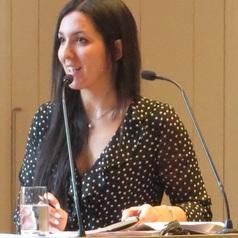
Jessica Di Salvatore
Associate Professor, University of Warwick
I am Associate Professor in Political Science and Peace Studies in the Department of Politics and International Studies at the University of Warwick. The core of my current research agenda concerns the political, economic and social impact of UN peace operations and their contribution to state-building and post-conflict development.
Less ![]()
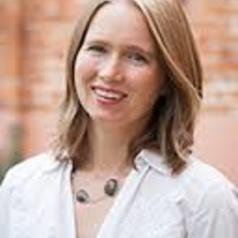
Jessica K Weir
Associate Professor, Culture and Society, Western Sydney University
Dr Jessica Weir is an Associate Professor at the Institute for Culture and Society, Western Sydney University, and a Visiting Fellow at the Fenner School of Environment and Society, The Australian National University.
Dr Weir investigates the social-cultural dimensions of environmental management, spanning issues of natural hazards, fresh water, native title, climate change and decolonial ethics. Dr Weir learns from Indigenous peoples' knowledge and governance practices, to draw out insights for public sector governance and academic knowledge generation. She works with Indigenous communities, leaders and academics in southeast and western Australia. Dr Weir worked for ten years in the Native Title Research Unit at the Australian Institute for Aboriginal and Torres Strait Islander Studies (AIATSIS).
Less ![]()
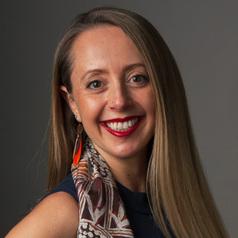
Jessica L Mackelprang
Senior Lecturer in Psychology & Clinical Psychologist, Swinburne University of Technology
Dr. Jessica Mackelprang is a Senior Lecturer in the Department of Psychological Sciences at Swinburne University of Technology. Prior to relocating to Australia, she earned her PhD in Clinical Psychology at Nova Southeastern University (Florida, USA) and completed postdoctoral fellowships in rehabilitation psychology and trauma research at the University of Washington (Seattle, USA).
Dr. Mackelprang's research studies psychological (e.g., posttraumatic stress disorder) and physical trauma (e.g., traumatic brain injury) among populations that have been marginalised, with a focus on supporting community members affected by homelessness and the frontline workers who serve them. Her work aims to reduce inequities in health service access and improve health outcomes among these populations. She also studies gender equity in academia. Her research involves a combination of quantitative, qualitative, and mixed methods.
A Clinical Psychologist by training, she has delivered psychotherapy in community health and hospital settings to individuals across the lifespan who are affected by life-altering injury or chronic illness, in addition to mental health difficulties. Alongside providing postgraduate research supervision, she teaches into undergraduate and postgraduate courses in psychology and counselling on topics related to health, trauma, and grief and loss.
Dr. Mackelprang is an Associate Editor for Clinical Psychologist, a Member of the Australian Indigenous Psychology Education Project Community of Practice, Past Chair of the Swinburne Indigenous Psychology Committee, and a Deputy Leader for the Swinburne Women's Academic Network (SWAN) Promotions Program.
Less ![]()
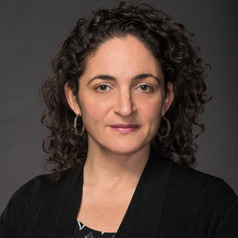
Jessica L. Adler
Associate Professor of History, Florida International University
Jessica Adler, Associate Professor of History at Florida International University, researches and teaches about health care, war and society, and incarceration in the United States.
Less ![]()
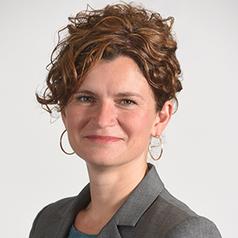
Jessica L. Waters
Assistant Professor of Justice, Law & Criminology, American University
Jessica L. Waters, J.D., has 25 years of experience as a lawyer, scholar, teacher, and higher education executive.
Waters currently serves as the Director of the American University School of Public Affairs (SPA) Leadership Program where she focuses on equipping students with experience, skills, and knowledge to prepare them for leadership roles in public service. Professor Waters is also a Faculty Fellow in the Center for University Excellence, which brings university research expertise to pressing problems in the public domain.
Waters recently served for seven years as American University’s first Dean of Undergraduate Education and Vice Provost for Academic Student Services (2016-2023) after holding multiple leadership positions at the university. As Vice Provost and Dean, she was the leader and principal decision-maker regarding American University’s undergraduate curriculum and academic supports and was charged with strategic decision-making and risk assessment for university-wide undergraduate policies and procedures.
Waters holds faculty appointments in the American University School of Public Affairs and the Washington College of Law. Her research focuses on reproductive rights law and policy, particularly exploring questions related to the legal impact of women’s medical decisions during pregnancy and childbirth, abortion regulation and access, state control of reproductive decision-making, employment-based conscience protections for reproductive health care providers, and reproductive rights of employees working for religiously affiliated employers. Her work has been published in the Harvard Journal of Law and Gender, the American University Journal of Gender, Social Policy and the Law, the Yale Journal of Law and Feminism, and the Stanford Journal of Civil Rights and Civil Liberties. Waters is a frequent media expert and commentator for local, regional, and national outlets (CNN, Fox News, NPR, NBC, VOA, BBC). She delivered a 2016 TedX talk, Changing the Reproductive Rights Conversation, and has recently authored op-eds for The Hill and USA Today.
Less ![]()
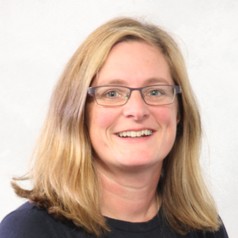
Jessica Louise Macbeth
Senior Lecturer in Sports Studies, University of Central Lancashire
Jess is a Senior Lecturer in Sports Studies and Research Degree Tutor in the School of Sport and Wellbeing, UCLAN. She teaches on the undergradute Sport and Physical Education and Sport Business Management degree programmes and supervises postgraduate research students. Jess was awarded her PhD, entitled 'Women's Football in Scotland: An Interpretive Analysis', from Stirling University in 2004. Since then she has worked as a Research Fellow and Lecturer at UCLAN. Her research focuses primarily on equity and equality in sport, with a particular focus on gender and disability.
Less ![]()
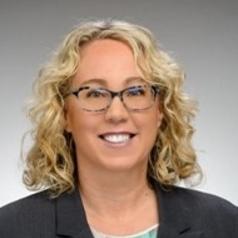
Jessica McManus Warnell
Teaching Professor of Management and Organization, University of Notre Dame
Jessica McManus Warnell teaches undergraduate and MBA courses in business ethics, sustainability, inclusive leadership, managing early career employees, and business and culture in Japan. Jessica is a past recipient of the United Nations Principles for Responsible Management Education (UN PRME) North America Chapter Award for Teaching Excellence. Her current research explores business students' values orientations, inclusive business and business education, and sustainable businesses and communities, including community and economic recovery in the wake of natural disasters. She served as a visiting teaching and research fellow at Reitaku University near Tokyo, and continues to collaborate with scholars and business executives in Japan. A Faculty Fellow of the Liu Institute for Asia and Asian Studies and of the Pulte Institute for Global Development, and Affiliated Faculty of the Environmental Humanities Initiative, the Gender Studies Program, the Initiative on Race and Resilience, the Environmental Change Initiative (ND-ECI), the Poverty Studies Minor, the Sheedy Family Program in Economy, Enterprise, and Society, and the Sustainability Minor, Jessica is the author of Engaging Millennials for Ethical Leadership: What Works for Young Professionals and Their Managers, part of the Giving Voice to Values collection on corporate social responsibility.
Less ![]()
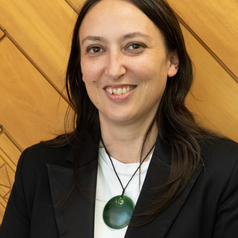
Jessica Niurangi Maclean
Lecturer, Aotahi School of Māori and Indigenous Studies, University of Canterbury
My areas of teaching include the history and contemporary context of Te Tiriti, Māori and Indigenous development, and political issues facing Māori. I also teach into the Bachelor of Criminal Justice, including a paper that focusses on Māori over-representation in the criminal justice system.
I am currently primarily engaged in research towards a PhD in Māori and Indigenous Studies with a philosophical focus. My research expertise includes Māori metaphysics, and Mana Wahine theoretical and methodological approaches.
I work with Ara Poutama to develop and deliver kaupapa Māori/Mana Wahine programmes in the Huritini Unit at Christchurch Women’s Prison. I am also engaged in interviewing for, and preparation of s27 cultural reports for the courts.
Less ![]()
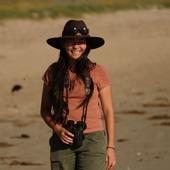
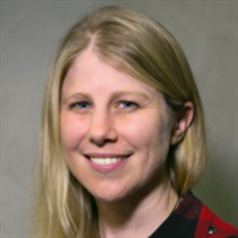
Jessie Jacobsen
Senior Lecturer, School of Biological Sciences and Centre for Brain Research, University of Auckland, Waipapa Taumata Rau
Jessie Jacobsen is a Senior Lecturer in the School of Biological Sciences and the Centre for Brain Research. She has an interest in the genetics underlying human conditions and their biological interpretation. In 2012, she returned to New Zealand from Massachusetts General Hospital and Harvard Medical School to help establish a genetic research programme for neurodevelopmental conditions, and subsequently co-founded the Minds for Minds research network
Less ![]()
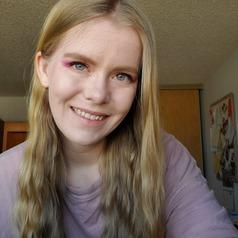
Jessie Krahn
Master's student, Department of English, Theatre, Film & Media, University of Manitoba
I received my B.A. (hons.) at the University of Manitoba's department of English, Theatre, Film and Media in 2018, where I am currently enrolled as a Master's student. My professional history is varied, as I have experience as a social media assistant at a local house Museum, Dalnavert. As well, I have experience as an accessibility worker in university classrooms and as a teaching assistant in undergraduate classes.
My academic portfolio is in its early stages, but I am the author of a forthcoming article (2024) on Ari Aster's Midsommar in the New Review of Film and Television Studies, and I am the co-author of a forthcoming article on crafting in the classroom in IDEAH.
Aside from my academic writing, I have professional experience as a public humanities communicator. I am the co-founder and co-producer of the SSHRC-funded podcast Victorian Samplings, a podcast of the Crafting Communities project, wherein I interviewed academics, curators, artists, and other experts on Victorian material culture. I am also an Arts & Culture reporter at The Manitoban, the University of Manitoba's student newspaper and a regular contributor at The Leveller, a community newspaper based in Ottawa.
My professional and academic experience have equipped me with strong communication skills and an ability to engage with newcomers in my field.
Less ![]()
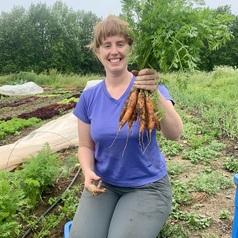
Jessie MacInnis
PhD Candidate, Clayton H. Riddell Faculty of Environment, Earth, and Resources and the Department of Environment and Geography, University of Manitoba
Jessie MacInnis (she/her) is a first-generation farmer and scholar activist based in Kespukwitk, Mi'kma'ki (aka Lunenburg County, Nova Scotia). She co-owns and operates a certified organic vegetable farm with her sister and is currently a PhD Candidate at the University of Manitoba. She is a board member of the National Farmers Union in Nova Scotia and participates in La Via Campesina processes regionally and internationally.
Less ![]()
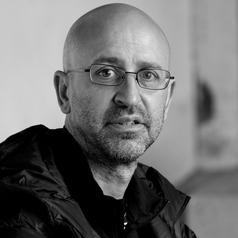
Jesus Casquete
Catedrático de Historia del Pensamiento y de los Movimientos Sociales y Políticos, Universidad del País Vasco / Euskal Herriko Unibertsitatea
Jesús Casquete es catedrático de Historia del Pensamiento y de los Movimientos Sociales y Políticos en la Universidad del País Vasco. Doctor en Sociología (1996) y en Historia Contemporánea (2019). Es autor de: En el nombre de Euskal Herria. La religión política del nacionalismo vasco radical (Tecnos, 2009); Nazis a pie de calle. Una historia de las SA en la República de Weimar (Alianza, 2017), Mártires nazis en Alemania, 1923-1939 (Alianza, 2020) y Politics of Death. The Cult of Nazi Martyrs, 1920-1939 (Routledge, 2023). Ha sido becario en repetidas ocasiones de la Fundación Alexander von Humboldt.
Less ![]()
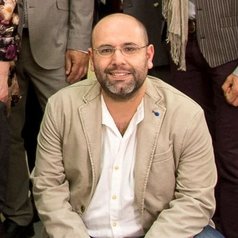
Jesús Palomar i Baget
Profesor de Ciencia Política, Universitat de Barcelona
Politólogo y gestor público. Profesor de Ciencia Política de la Universitat de Barcelona. Miembro del Col·legi de Professionals de la Ciència Política i de la Sociologia de Catalunya.
Less ![]()
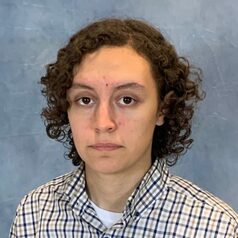
Jeta Luboteni
Ph.D. Student in Religion, Boston University
Jeta Luboteni is a second-year Ph.D. student in the Islamic Studies specialization in the Department of Religion, working under the Direction of Dr. Kecia Ali. Jeta’s interests include the racialization of Islam in the United States and how it impacts Albanian-American immigrants. They are also interested in Quranic studies as well as the discourses on orphans in Islam. Jeta completed a BA in International Relations with a minor in Sociology at American University, and a MA in Middle East and Islamic Studies at George Mason University.
Less ![]()
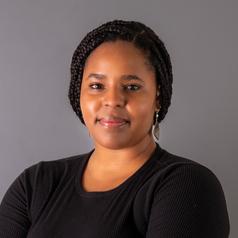
Jhordanne Jones
Postdoctoral Research Fellow in Climate and Weather Extremes, Purdue University
Jhordanne Jones is a NOAA Climate & Global Change postdoc fellow hosted by Purdue University. Her research examines the degree of predictability achieved from large-scale environmental phenomena for seasonal tropical cyclone activity. Tools being used to explore this TC-environment predictability are global reanalysis datasets, climate model output, and simulations.
Less ![]()
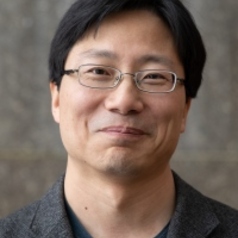
Ji Hao
Associate Professor of Chinese Studies , College of the Holy Cross
My research interests include premodern Chinese poetry and poetics and fantastic tales and novels in late imperial China. I am particularly interested in the process of literary canon formation in premodern China as well as translation and circulation of premodern Chinese literature in a cross-cultural context. In the past several years, I have focused on two major research projects: one centers on the reception of the eighth-century Chinese poet Du Fu and his poetry, and the other is associated with the sixteenth-century novel Xiyou ji (Journey to the West).
Less ![]()
- Market Data


















